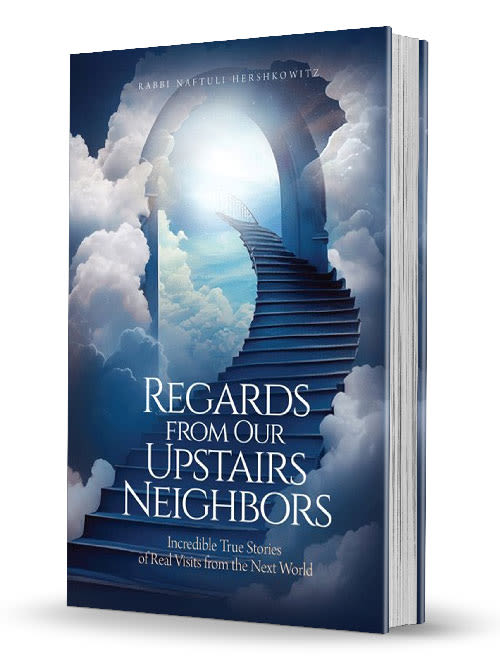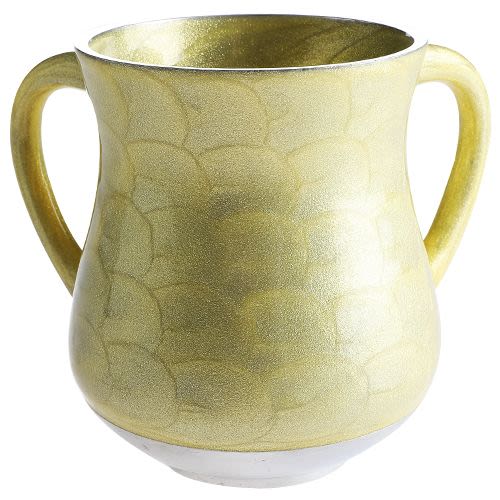
To Be a Dreamer, Part 2
From a young age, Joseph began to play the part of the leader of the family and eventually became not only the leader of his family, but...

Yosef Hatzaddik never forgot his dreams, and he waited, anticipating how they might be fulfilled in the future. Every step along the way, whether it was positive or negative, had the potential, from Yosef’s perspective, to bring him to the fulfillment of his dreams of leadership and royalty. From a very early age he began to act the part:
Yosef was a shepherd with his brothers by the flock, but he was a youth with the children of Bilhah and Zilpah… (Bereishit 37:2)
His actions were youthful: he fixed his hair and touched up his eyes to appear handsome. (Rashi)
Something, apparently, that Yosef associated with being a ruler:
As soon as he saw that he was ruler he began to eat and drink and curl his hair.[i] (Rashi, Bereishit 39:6)
We see that from the beginning Yosef was living out his dreams, even though they had yet to materialize. From a young age, Yosef began to play the part of the leader of the family and eventually became not only the leader of his family, but of the entire world around him. Whether or not he deemed himself worthy of his goals, he pursued them, believed in them, and trusted that God would grant them to him. He was a believer in the following midrash:
One who trusts in God will be surrounded by kindness (Tehillim 32:10): Even an evil person who trusts in God will be surrounded by kindness. (Midrash Tehillim 32:10)
And, if it is true for a rasha — evil person — it must be true for a tzaddik, which Yosef was.
Knowing this, we can answer an age-old question regarding Yosef, but in a new way, one that makes a lot of sense given other principles of Torah. We are told, that Yosef spent an additional two years in prison because he had placed his trust in the wine steward to speak up on his behalf and free him from his situation. However, had not Yosef merely made a minimal effort to free himself from an unfortunate situation? Did Yosef doubt for a moment that it was God Who would eventually free him?
As a result, Rashi explains:
Because Yosef placed his trust in him that he should remember him he was destined to remain in prison for two [extra] years. Thus it says, “Happy is the man who makes God his trust and does not turn to the arrogant” (Tehillim 40:5); he does not trust in the Egyptians who are called “arrogant”. (Rashi, Bereishit 40:23)
From Rashi it does not seem that the problem was trusting in a human to be the instrument of Divine Providence; we do it all the time and call it “hishtadlut” — effort. The problem, according to Rashi, was in relying on the wrong type of person, which, unfortunately, we have also done throughout history. Right or wrong, we do it every day, in some way or another, forcing some to say that for someone on Yosef’s level of trust in God it was wrong, but, perhaps, not for the rest of us.
However, the answer to the question lies in another part of Yosef’s statement, one that seems far more uncharacteristic of the Yosef we have come to know and admire. This is the full extent of his statement:
“Please remember me when it goes well for you; do a kindness for me by mentioning me to Pharaoh and bring me out of this house. I was kidnapped from the land of the Hebrews, and I did nothing for them to have put me into the pit.” (Bereishit 40:14-16)
In the entire story about Yosef, nothing sounds more out of place than the words, “and I did nothing for them to have put me into the pit.” What did Yosef mean with these words? What was he trying to say? That there is a lack of justice in Creation? That evil people can do bad to good people without God’s agreement? That everything he had gone through was for no specific reason, and therefore he was justified in complaining?
Whatever Yosef had meant by the addition of these words, it was a violation of the very principle by which he had lived his life until that time, and would live by for the rest of his life until the day he would die. Perhaps the two extra years he spent in prison served their purpose, to ingrain in Yosef the type of mentality that leads to success, not failure — to redemption as opposed to exile. Hence his words to his brothers later on:
Yosef said to them, “Don’t be afraid. Am I in place of God? You decided to do evil to me, but God decided it should be for the good …” (Bereishit 50:19-20)
The Talmud teaches that everything God does He does for the good (Brochot 60b). Negative events happen in this world, and there is much that happens around us and to us that can easily bring us down; there is a role for sadness in this world just as there is for happiness. However, Dovid HaMelech taught:
Serve God with joy! (Tehillim 100:2)
He did not stipulate, “Except when this happens, or when this happens, etc.”
If anyone had reason to be sad or depressed, it was Yosef HaTzaddik, in view of what he underwent throughout his life. The hatred and jealousy he suffered from within his own family would be enough to make anyone run away from home. The trials and tribulations he experienced along his road to success would be enough to make just about anyone else give up on the idea of making it.
Yet, when we recall Yosef, we don’t identify him with the bad things that happened in his life, just the good things. We talk about them, but almost in a positive light, as if to say, “Isn’t it amazing how adversity turned into opportunity for Yosef HaTzaddik, and how he stayed positive the entire way through?”
People who want to be happy really have no choice. People who want to be successful, materially or spiritually, have no option. For, there is an operating principle in life, a very strict one, and if it is not obeyed the worst of the worst can happen, God forbid:
All [these curses] are because you did not serve God, your God out of joy and with gladness of heart while you possessed good things. Therefore, you will instead become servants of your enemies, whom God will send against you. [You will suffer from] famine, thirst, nakedness, and a lack of everything. He will put a yoke of iron upon your neck, until He has eliminated you. (Devarim 28:47-48)
And, that seminal and crucial operating principle of life emerges from an equally short and cryptic posuk:
God is your shadow on your right. (Tehillim 121:5)
Oh really? God is our shadow? That sounds radically different from the way most people live their lives, believing instead that it is the other way around, that we live in God’s shadow. Isn’t that why we seem to have so little control over our lives?
Indeed, we want to be happy, but it is Heaven Who holds out on us and denies us what we think we need to be happy. We want to be successful, but it is God Who doesn’t give us wealth. We try to raise perfect children, but outside circumstances, which are Divinely-controlled, work against us!
Who operates in whose shadow?
[i] The only criticism leveled at Yosef was for doing this while his father was still in a state of mourning.
***
Pinchas Winston is the author of over 95 books on various topics that deal with current issues from a traditional Jewish perspective. He has also written on the weekly Torah reading since 1993, called “Perceptions”, as well as on current topics and trends affecting Jewish history, past and present. One of his missions is to make the depth and beauty of the more mystical teachings of Torah understandable and accessible to those who can really benefit from them. Visit his website at thirtysix.org.














Tell us what you think!
Thank you for your comment!
It will be published after approval by the Editor.